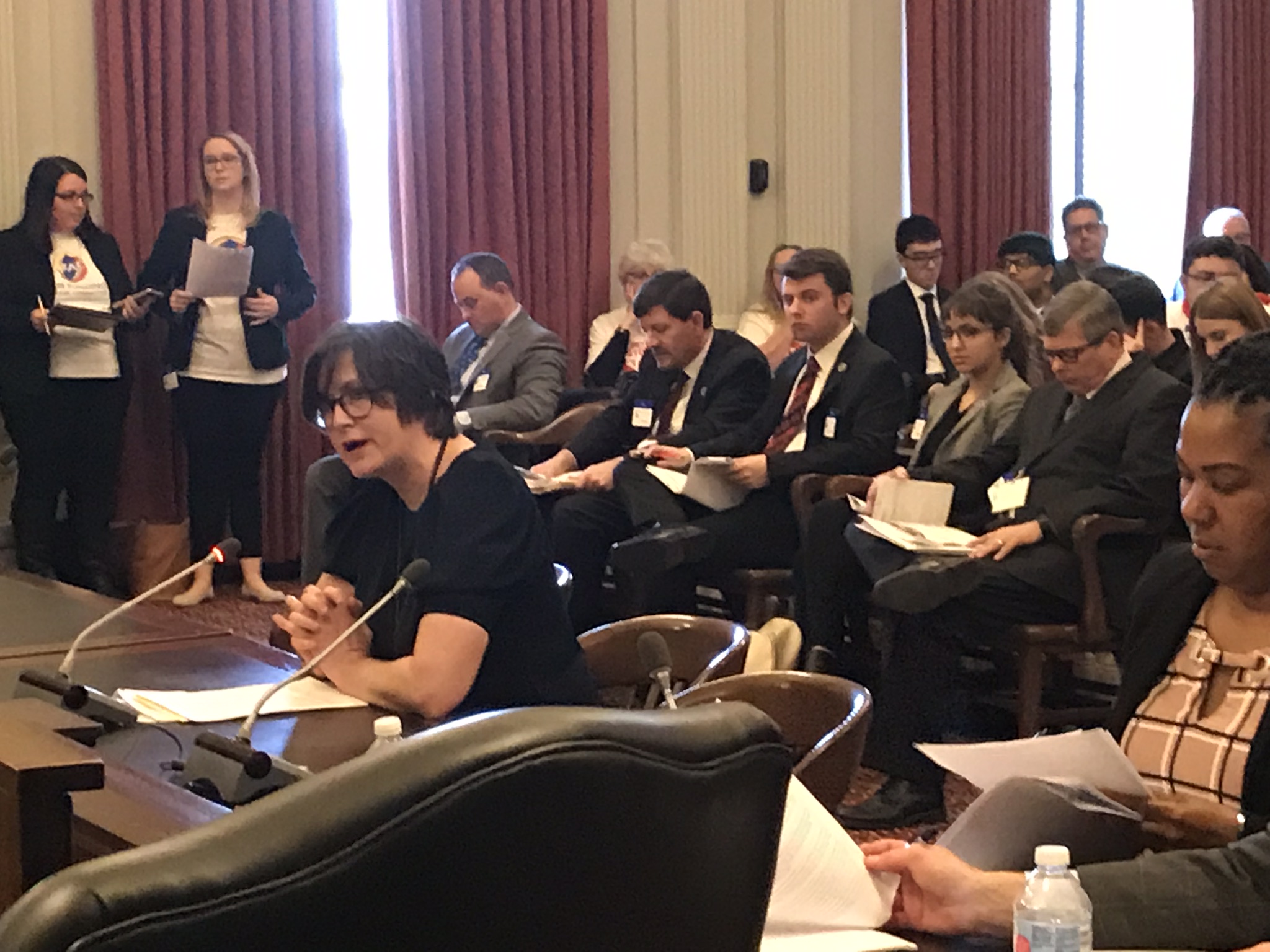
This testimony on the FY2020 New Jersey budget was delivered to the Assembly Budget Committee on Monday, March 20, 2019.
Good morning, Chairwoman Pintor Marin and members of the committee. Thank you for this opportunity to speak before you today. My name is Sheila Reynertson and I am a senior policy analyst at New Jersey Policy Perspective.
A decade after the Great Recession, New Jersey continues to struggle to bounce back. Revenue streams have chronically fallen short of spending needs leading to gimmicky fixes and funding raids. The Rainy Day Fund has been empty since 2009, a risky situation should New Jersey be slammed by another recession. Massive tax cuts for the wealthy and corporations have harmed the lives of everyday families and small businesses in many important ways, including higher college tuition costs and more expensive NJ Transit commutes.
We approach the 2020 budget with two clear objectives in mind. First, raise sufficient revenue to meet the state’s necessary obligations, invest in the critical public assets that make New Jersey an attractive place to live and do business, and provide support for the most vulnerable members of our communities. Second, bring responsible budgeting practices back in vogue.
The centerpiece of Governor Murphy’s budget calls for applying the highest tax rate of 10.75 percent to annual earnings over $1 million, raising much needed new, sustainable revenue. We support this proposal and legislative leaders who have repeatedly passed it in the past should have no problem doing so today.
New, sustainable sources of revenue like the millionaire’s tax allows property tax relief programs to keep up with the cost of living, offering meaningful support to seniors and those living on a fixed income. That in turn frees up resources to help New Jersey’s neediest families by increasing the Work First NJ grant for basic assistance again this year. Renewable sources of revenue help lawmakers wean themselves off risky budgetary practices — like using the state surplus as a slush fund — that have contributed to 11 credit downgrades. It frees up resources for universal representation to help keep New Jersey families together in this age of extreme xenophobia. It helps fund the Earned Income Tax Credit increase, one of the most effective anti-poverty tools and recently found to be even more cost effective than originally thought. And, of course, sustainable revenue allows New Jersey to continue making critically important investments in state assets that all families rely upon every day like NJ Transit and institutions of higher education.
Concern that voters oppose taxing millionaires should be calmed by a diverse array of state-level polls consistently demonstrating strong support for a true millionaire’s tax among likely voters.
Any worry that wealthy taxpayers will flee New Jersey should be dismissed by peer-reviewed research findings, the vast majority of which show that raising the state income tax has a negligible effect on relocation decisions. The number of New Jersey taxpayers with incomes over $500,000 has consistently grown even as income tax rates on wealthy households have been increased twice. The share of these taxpayers grew an astonishing 450 percent, between 1994 and 2016, the most recent year for which data is publicly available. Millionaire tax flight is a myth, and that fact doesn’t go away when lawmakers hear anecdotal stories from estate planners.
What should worry representatives is that the top 1 percent of earners in the Garden State, who earn an average $1,582,000 a year, make 24.3 times more than what the bottom 99 percent makes. This level of inequality ranks New Jersey as 9th worst in the nation.
These high earners take home one fifth of all income made in the state. This is not far off from the state’s historical high, which peaked just before the Great Depression during the last Gilded Age. Yet today’s wealthy households in New Jersey pay a smaller share of their income in state and local taxes – 9.8 percent – than those in the middle 20 percent who, on average, earn $66,000 a year – 10.1 percent.
The millionaire’s tax, coupled with a strong commitment to phasing out gimmicky revenue raisers, ending raids of dedicated funds, and replenishing New Jersey’s surplus is the definition of a disciplined approach to this year’s budget. We also encourage the legislature to further this work by enacting consensus budget forecasting as a first step toward creating a comprehensive roadmap for sound long-term budget planning. Long-term planning that includes multi-year revenue and spending projections and more transparency might raise questions and issues that one-year budgeting intentionally avoids and, optimistically, break the cycle of accounting games and gimmicks that have dug New Jersey into this deep financial hole.
I’d like to close my testimony by addressing one last concern that some committee members may have. There is an assumption that a millionaire’s tax will somehow be unfair because New Jersey’s highest earners are already paying more in federal taxes with the loss of SALT deductions. However, nothing could be further from the truth. According to modeling conducted by the Institute on Taxation and Economic Policy, the top 1 percent of New Jersey taxpayers would still receive a sizable tax cut – from $2,500 to $3,200 – even with the SALT cap and Governor Murphy’s proposed millionaire’s tax because other changes in the federal tax law are so disproportionately generous to wealthy households, like the corporate tax cut and the higher estate tax threshold.
Thank you for your time and attention.

